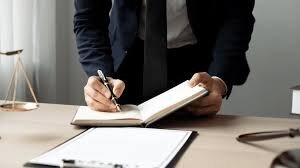
If you’ve been injured due to someone else’s negligence, you may be wondering what it takes to build a strong case. Whether you need a personal injury lawyer in Denver or plan to handle the claim yourself, gathering the right evidence is crucial. From medical records to witness statements, every piece of documentation can impact the outcome of your case. Below, we break down the key types of evidence required to win a personal injury claim in Denver.
Medical Records and Treatment Documentation
Medical records form the backbone of any personal injury claim. Without proper documentation, it becomes difficult to prove the extent of your injuries and connect them directly to the accident. You should collect all relevant medical documents, including doctor’s notes, hospital records, prescription receipts, and diagnostic test results. These records not only verify your injuries but also establish the necessary treatment and associated costs.
Insurance companies often scrutinize medical records to determine the legitimacy of a claim. If there are gaps in treatment or inconsistencies in the documentation, they may argue that your injuries are not as severe as claimed. To avoid this, ensure you attend all medical appointments and follow your doctor’s recommendations. Keeping a personal log of symptoms and treatments can also help reinforce your case.
Police and Accident Reports
In cases involving car accidents, workplace injuries, or public incidents, a police or accident report can be invaluable. These reports provide an official account of what happened, including details like the responding officer’s observations, statements from involved parties, and any citations issued. In Denver, you can request a copy of the police report from the local department that handled the incident.
A well-documented accident report helps establish liability, which is essential for proving negligence. If the other party was issued a ticket or found at fault, this can significantly strengthen your claim. Even in slip-and-fall cases, a business or property owner’s incident report can serve as critical evidence.
Photographic and Video Evidence
Visual evidence is one of the most compelling ways to support your claim. Photos and videos can capture the scene of the accident, your injuries, and any hazardous conditions that contributed to the incident. If possible, take pictures immediately after the accident, including vehicle damage, skid marks, or unsafe property conditions.
Surveillance footage from nearby businesses or traffic cameras can also be crucial, especially in hit-and-run cases or disputes over fault. The sooner you act, the better, as security footage is often overwritten after a short period. If you were unable to take photos at the scene, returning later to document the area can still be helpful.
Witness Statements
Eyewitness testimony can make a significant difference in a personal injury case. Independent witnesses provide unbiased accounts that can corroborate your version of events. If anyone saw the accident happen, ask for their contact information and a brief statement about what they observed.
In some cases, witness statements may be the only way to prove negligence, especially if there’s no police report or video evidence. If your case goes to trial, witnesses may be called to testify, so their credibility and clarity are important.
Employment and Wage Loss Documentation
If your injury forced you to miss work, you could be entitled to compensation for lost wages. To prove this, gather pay stubs, tax returns, and a letter from your employer confirming your absence. If your injury affects your ability to work long-term, medical professionals may need to provide documentation about your limitations.
For self-employed individuals or gig workers, proving lost income can be more challenging. In these cases, invoices, bank statements, and client communications can help establish your typical earnings.
Insurance Communication and Settlement Offers
Insurance companies will often try to minimize payouts, so keeping a record of all communications is essential. Save emails, letters, and notes from phone calls with adjusters. If they make a low settlement offer, having this documented can help your attorney negotiate a fair amount.
Be cautious when speaking with insurance representatives—they may try to use your words against you. Avoid giving recorded statements without consulting a lawyer first.
Personal Injury Journal
A daily journal can help document the non-economic impacts of your injury, such as pain levels, emotional distress, and daily struggles. This can be especially useful when seeking compensation for pain and suffering, which doesn’t have a direct financial cost but still affects your quality of life.
Why Legal Help Can Make a Difference
While some injury claims can be handled independently, complex cases often require legal expertise. A lawyer can help gather evidence, negotiate with insurance companies, and, if necessary, take your case to court. When choosing the right car accident lawyer in Denver legal representation, look for a firm with experience in personal injury law and a history of successful settlements.
The right evidence can make or break your case, so taking the time to collect and organize documentation is crucial. If you’re unsure where to start, consulting a lawyer can provide clarity and improve your chances of a fair outcome.
Website of Source: https://gencoinjury.com/
Source: Story.KISSPR.com
Release ID: 1392282
